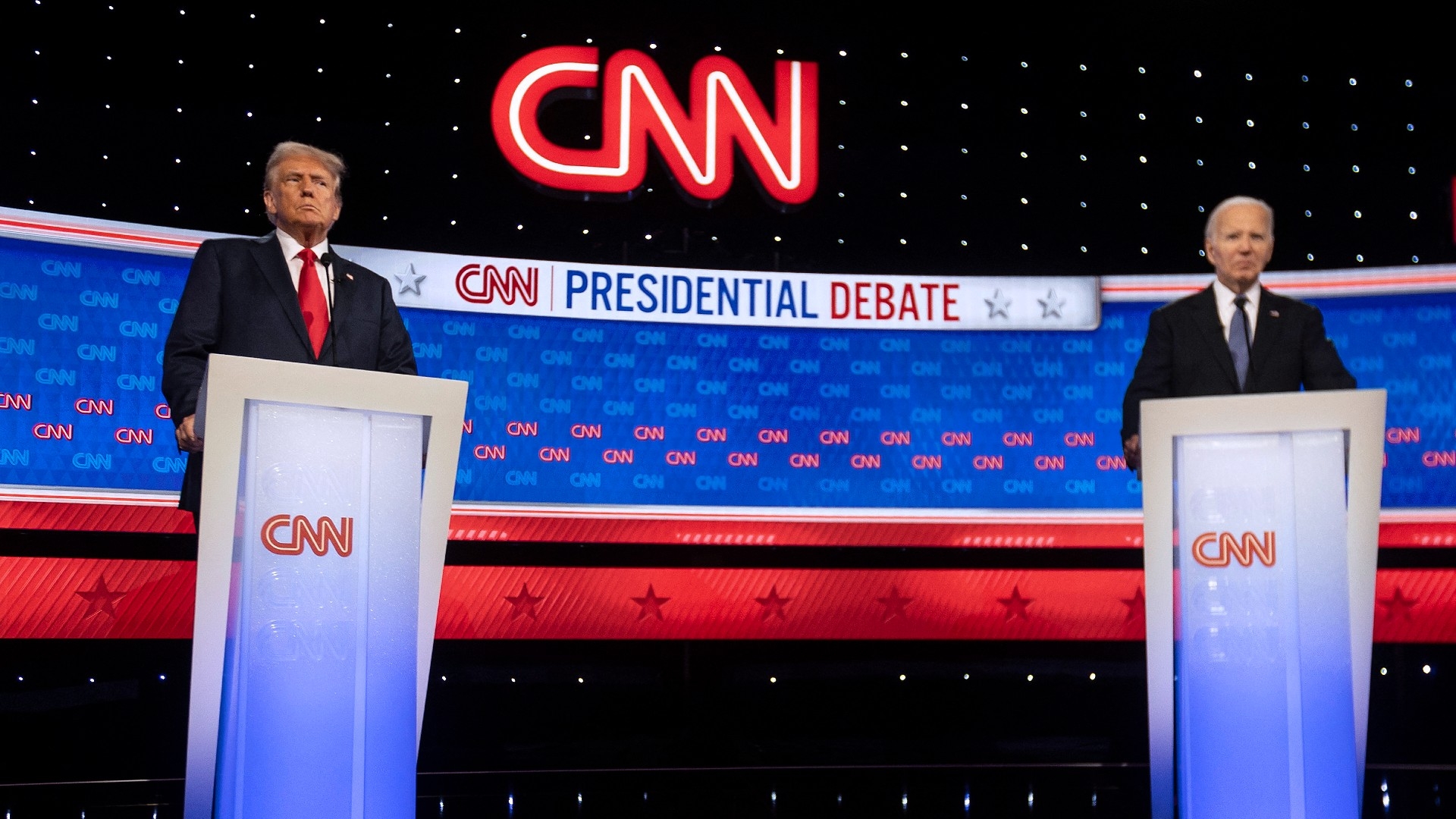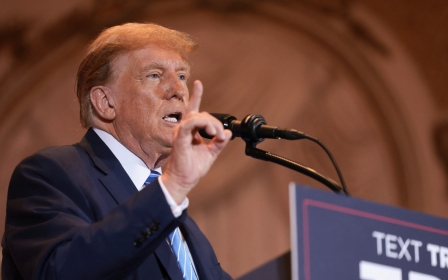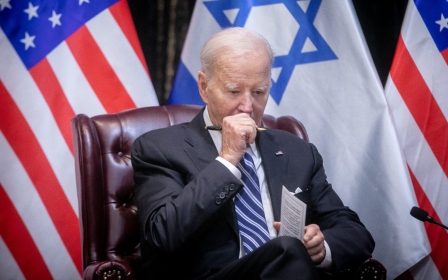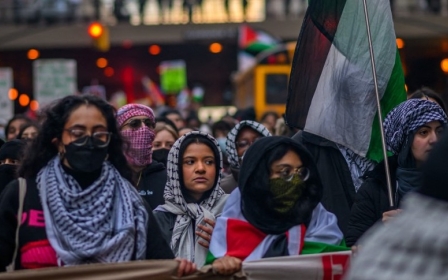Trump calls Biden a 'bad Palestinian' as candidates spar over support for Israel

Republican front-runner Donald Trump denigrated the Palestinians during the first debate of the 2024 presidential election cycle on Thursday, and attacked US President Joe Biden for not being supportive enough of Israel's war on Gaza as both candidates attempted to defend their pro-Israel credentials.
Issues concerning the war first erupted around the 30 minute mark when Trump criticised Biden's foreign policy in an exchange about the war in Ukraine and said that if he was still in office Putin "never would have invaded Ukraine, never – just like Israel would have never been invaded in a million years by Hamas, because Iran was broke with me."
Biden responded by calling Trump's remarks "malarkey" and said his predecessor failed American troops who were wounded by Iranian forces in retaliatory attacks following the assassination of Iranian general Qassem Soleimani on 3 January, 2020.
In a follow up question about the war on Gaza, Biden then falsely claimed that every party but Hamas had agreed to his ceasefire proposal and that he had secured an across-the-board agreement for his three-stage plan to end the war, including from Israel.
"Everyone from the United Nations Security Council, straight through the G7 to the Israelis and [Israeli Prime Minister Benjamin] Netanyahu have endorsed the plan that I put forward,” Biden said.
New MEE newsletter: Jerusalem Dispatch
Sign up to get the latest insights and analysis on Israel-Palestine, alongside Turkey Unpacked and other MEE newsletters
"The only one who wants the war to continue is Hamas," he added.
Netanyahu has publicly said he opposes a permanent ceasefire agreement.
Biden then said that "we're still pushing hard to get them to accept. The only thing I've denied Israel was 2,000 pound bombs, they don't work in very well-populated areas – they kill a lot of innocent people. We're providing Israel with all the weapons they need, and when they need them."
He then said that he's "the guy" who mobilised US allies to stop Iran's missile attack on Israel.
"No one was hurt, not one Israeli was accidentally killed and it stopped," he said, referring to the interception of more than 300 ballistic missiles and drones launched by Iran on April 13. "We saved Israel. We are the biggest producer of support for Israel of anyone in the world."
He reiterated his opinion that Hamas has been "greatly weakened" by Israel, adding that the group "should be eliminated."
'Let them finish the job'
Responding to Biden, Trump criticised the US president for not being supportive enough of Israel's military operations in Gaza, disparaging Palestinians in the process.
"Israel is the one that wants to keep going. He said the only one who wants to keep going is Hamas. Actually, Israel is the one that wants to keep going, and you should let them go and let them finish the job," he said.
"He doesn't want to do it. He's become like a Palestinian, but they don't like him because he's a very bad Palestinian, he's a weak one," Trump said, which garnered significant backlash online.
In April, Trump told conservative radio host Hugh Hewitt: "What I said very plainly is get it over with and let’s get back to peace and stop killing people."
"I’m not sure that I’m loving the way they’re doing it," he added.
He went on to say that while he wanted Israel to achieve its goals in Gaza, it was "taking a long time".
He also openly criticised the footage released by Israel's military that showed the destruction of Gaza, saying they were "the most heinous, most horrible tapes of buildings falling down".
In April, Trump also did not rule out ending military aid to Israel over its military campaign in Gaza during an interview with Time magazine.
Trump told Time: "I think that Israel has done one thing very badly: public relations."
He was then asked about if he would rule out withholding or conditioning aid to Israel. The former president responded, "no".
A battle for who is more pro-Israel
Israel's war on Gaza began on 7 October, when Palestinian fighters led by Hamas broke out of Gaza and led a surprise attack on southern Israel, killing around 1,200 people and taking at least 240 hostages back to the enclave.
Israel responded with a declaration of war, and has since killed more than 38,000 Palestinians, laid siege to and attacked hospitals, targeted other civilian infrastructure, including schools and mosques, and killed aid workers.
Despite the widespread devastation, Biden has stood firmly behind Israel, visiting the country and becoming the first US president to visit there during a war.
The Biden administration has also fast-tracked millions of dollars of weapons and munitions to Israel, and has called for additional military support to the country.
Biden's unrelenting support for the war has since grown unpopular amongst the ordinary American public, and in March, The New York Times reported that Biden's donors were concerned his policy on Gaza would lose him the presidency.
Meanwhile, Trump, who came into the debate with a narrow edge over Biden in several polls, has often touted that he is the most pro-Israel president in US history.
The topic of Gaza, which has sparked one of the largest mass mobilisations in the US against Israel's war in recent decades, only received a few minutes on the presidential debate stage.
But while the majority of Americans, according to recent polling, disapprove of Israel's actions in the enclave, Trump and Biden were battling for who would be more supportive of Israel.
Middle East Eye delivers independent and unrivalled coverage and analysis of the Middle East, North Africa and beyond. To learn more about republishing this content and the associated fees, please fill out this form. More about MEE can be found here.





